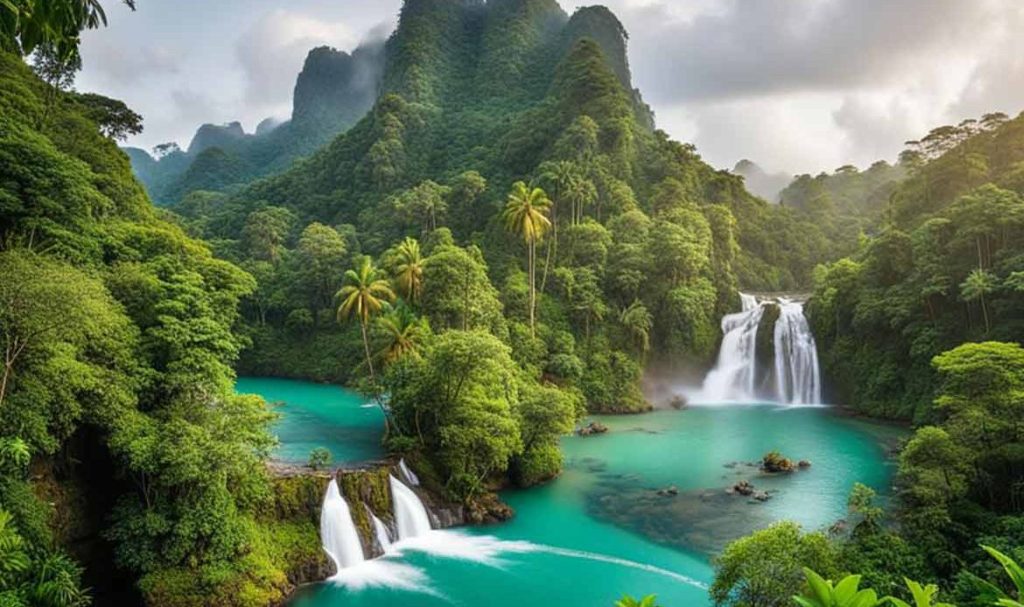Ecological Adventure Itineraries: Exploring Sustainable Destinations and Conservation Activities in Nature

Traveling can significantly affect our planet’s health, yet it holds the potential to foster positive changes. Yes, the surge in eco-conscious travelers is shaping the tourism landscape, making sustainable destinations and conservation activities essential elements of modern travel experiences. These eco-friendly adventures serve as gateways to not just enjoyment but also meaningful engagement with nature and the communities that inhabit it.
Key Features of Ecological Adventure Itineraries
Ecological adventures encompass a wide range of exciting and impactful opportunities. Firstly, there is a strong focus on responsible wildlife encounters. Travelers can enjoy the thrill of observing majestic creatures in their natural habitats, from the stunning fin whales off the coast of California to the iconic bison in Yellowstone, all while ensuring that these animals are not disturbed in their daily lives.
Moreover, cultural experiences play a pivotal role in ecological travel. Travelers have the chance to interact directly with local communities, tapping into their sustainable practices. This might include participating in traditional farming methods, learning about indigenous rituals, or becoming involved in local handicraft markets. Such interactions foster a deeper understanding of the delicate balance between nature and culture.
A further compelling aspect is the opportunity to engage in conservation projects. Many tour companies now offer activities that are designed to protect endangered species and their habitats—whether it’s helping with sea turtle nesting programs along the Gulf Coast or participating in reforestation efforts in the Pacific Northwest. These hands-on experiences not only enrich one’s travel experience but also contribute significantly towards ecological restoration efforts.
In the United States, breathtaking destinations like Yellowstone National Park and Big Sur stand out as prime locations for ecological adventures. Beyond their picturesque landscapes, they provide ample opportunities for visitors to engage in environmental stewardship through volunteer programs. Guests can participate in park clean-up drives, habitat restoration, and educational workshops about local flora and fauna, fostering a sense of responsibility towards the natural world.

Why Choose Ecological Adventures?
Choosing an ecological adventure itinerary comes with a myriad of benefits. Travelers can directly support conservation efforts, ensuring their money goes towards important initiatives rather than harmful practices. Additionally, many of these adventures are designed to reduce carbon footprints; eco-friendly transportation options such as bike tours or nature hikes minimize environmental impact while providing a unique way to explore.
Moreover, there’s an unparalleled opportunity to connect deeply with nature and local cultures. These immersive experiences often create lasting memories and can even inspire travelers to adopt more sustainable practices in their day-to-day lives. By joining the growing movement of mindful adventurers, individuals can explore the globe while making a positive impact, ensuring that the beauty of our planet is preserved for generations to come.
DISCOVER MORE: Click here for exclusive adventure itineraries
Embracing Responsible Wildlife Encounters
When planning an ecological adventure, one of the first considerations is the opportunity for responsible wildlife encounters. This aspect of eco-tourism allows adventure seekers to connect with nature while prioritizing animal welfare. From kayak excursions to view orcas in the Pacific Northwest to guided hiking tours that reveal the elusive Florida panther, these experiences emphasize observing wildlife in a way that does not disrupt their natural behavior.
Responsible wildlife tourism not only enriches the traveler’s experience but also plays a critical role in conservation efforts. By supporting eco-friendly tour operators that follow ethical guidelines, travelers contribute to habitat preservation. This can mean visiting protected areas where funds from park entrances support conservation projects, as seen in the various national parks across the United States. In places like Yosemite National Park, guests can participate in ranger-led programs that educate them about local wildlife and conservation measures, further enhancing their understanding and appreciation of nature.
Cultural Connections and Sustainable Practices
Another essential component of ecological adventure itineraries is the integration of cultural experiences that enlighten travelers about sustainable practices of local communities. Immersing oneself in the culture not only enhances the travel experience but also highlights the intertwined relationship between people and their environment. For instance, visitors to the Southwest can engage with Native American tribes to learn about traditional land stewardship techniques and their efforts to maintain ecological harmony.
This cultural immersion might involve:
- Participating in traditional cooking classes that showcase local ingredients.
- Attending workshops on sustainable textile production, promoting crafts that are both beautiful and eco-friendly.
- Joining in revitalization projects that honor cultural sites while promoting biodiversity and conservation.
Experiencing these cultural practices not only fosters appreciation for local traditions but also shapes travelers’ views on sustainability. These interactions cultivate a deeper sense of global responsibility, prompting many to advocate for environmentally conscious choices in their own lives.
Hands-On Conservation Projects: The Heart of Ecological Travel
Engaging in conservation projects is where the impact of ecological adventures truly shines. Many travel companies now offer itineraries that provide guests with the chance to roll up their sleeves and contribute directly to environmental initiatives. Whether it’s assisting with sea turtle nesting efforts on the Gulf Coast or volunteering for tree planting in national forests, these experiences make a tangible contribution to conservation.
For example, organizations like Earthwatch provide a platform for eco-conscious travelers to participate in scientific research and conservation efforts globally. In states like California and Oregon, travelers can contribute to vital studies on wildlife populations and habitat restoration, weaving a narrative of proactive engagement with nature. Through these hands-on opportunities, adventurers not only deepen their connection to the environment but also help ensure that these miraculous landscapes and species are preserved for future generations.
| Category | Advantages |
|---|---|
| Sustainable Travel | Promotes environmental conservation while satisfying adventure seekers. |
| Community Engagement | Supports local economies and fosters genuine interactions with residents. |
| Wildlife Conservation | Encourages participation in conservation activities, protecting endangered species. |
| Cultural Preservation | Helps in preserving cultural heritage and indigenous practices. |
Exploring ecological adventure itineraries is becoming increasingly vital in our quest to create sustainable travel experiences. These itineraries not only highlight natural beauty but also emphasize responsibility towards the environment. Sustainable travel practices are essential as they directly promote the conservation of biodiverse ecosystems while providing an avenue for adventure enthusiasts to witness the wonders of nature firsthand.Additionally, engaging with local communities transforms what could be a passive travel experience into an enriching one. By supporting local economies, travelers can immerse themselves in authentic cultural exchanges that also contribute significantly to the sustainability of the area. This engagement often includes participating in traditional conservation efforts, giving adventurers a direct role in protecting endangered wildlife and preserving the natural landscape.Sustainable itineraries also integrate elements of cultural preservation, ensuring that indigenous practices and heritage are respected and maintained, allowing visitors to appreciate and learn from the rich traditions that exist alongside nature. By embracing these ecological adventures, travelers become part of a larger movement towards a sustainable future, advocating for a balance between exploration and conservation.
DISCOVER MORE: Click here to uncover the natural wonders
Eco-Friendly Travel Accommodations: Staying Sustainably
A critical aspect of ecological adventure itineraries is the choice of accommodations. Selective travelers are increasingly prioritizing eco-friendly lodging options that align with their environmental values. From sustainable hotels and eco-lodges to community-based homestays, staying at environmentally conscious accommodations supports local economies while minimizing the environmental impact of tourism.
Many eco-friendly accommodations adhere to sustainable practices such as:
- Utilizing renewable energy sources like solar and wind power.
- Implementing water conservation techniques, including rainwater harvesting and low-flow fixtures.
- Employing green materials in construction and furnishing, ensuring products are sustainably sourced.
For instance, in places like the Smoky Mountains, eco-lodges offer a unique stay experience—integrating luxury and sustainability. Guests can find accommodations that feature organic bedding, locally sourced meals, and packages that include eco-adventures such as guided hikes or wildlife watching. By choosing such options, travelers can significantly reduce their carbon footprint and experience the essence of nature without compromising comfort.
Educational Expeditions: Learning from Nature
Education is at the core of ecological adventures. Many itineraries include educational expeditions designed to enlighten travelers about local ecosystems, conservation techniques, and environmental challenges. These trips might involve expert-led workshops, nature walks, or interactive exhibits focused on ecology and conservation.
In regions like the Florida Keys, for example, eco-tourists can participate in marine biology workshops that focus on coral reef restoration and the effects of climate change. These immersive learning experiences not only enhance travelers’ understanding of ecological complexities but also empower them to become advocates for environmental preservation upon returning home. The integration of education in adventure travel ensures that participants leave with knowledge and tools to take meaningful action in their own communities.
Promoting Local Biodiversity: Supporting Conservation Efforts
Ecological adventures are also about safeguarding local biodiversity. Programs designed to promote awareness and implementation of conservation strategies are an integral part of eco-tourism. By engaging in adventure itineraries that are committed to preserving wildlife habitats and promoting species recovery efforts, travelers can actively contribute to conservation.
For example, eco-tours in states such as Texas work directly with organizations focused on restoring native habitats for endangered species like the Whooping Crane and the Texas Horned Lizard. Tourists can participate in seasonal activities such as habitat clean-up or guided bird watching excursions, where a portion of the proceeds from these activities directly funds ongoing conservation efforts. This symbiotic relationship between eco-tourism and conservation serves to benefit both the traveler seeking adventure and the ecosystems they explore.
Through various layers of engagement—from responsible wildlife encounters to supporting local conservation—ecological adventures not only provide enriching experiences but also advocate for a sustainable future. Emphasizing education, local culture, and grassroots conservation projects contributes to a holistic approach that ensures the beauty of nature continues to thrive for generations to come.
DIVE DEEPER: Click here to uncover more authentic experiences
Conclusion: The Path to Sustainable Exploration
In an increasingly interconnected world, the rise of ecological adventure itineraries invites travelers to explore nature responsibly while fostering a deeper understanding of environmental stewardship. This sustainable form of tourism not only offers unique experiences but also educates individuals on the pressing ecological challenges facing our planet.
As highlighted throughout this article, eco-friendly practices in travel are multidimensional—from choosing environmentally conscious accommodations to participating in educational programs that delve into local ecosystems. Adventure seekers can now engage with nature without contributing to its degradation, making conscious choices that both thrill and preserve.
Moreover, supporting local biodiversity through conservation initiatives creates a meaningful connection between travelers and the communities they visit. By engaging in activities that promote habitat restoration and wildlife protection, tourists become vital partners in the fight against environmental decline. Whether embarking on an eco-tour in the breathtaking landscapes of California’s Redwoods or participating in coral restoration efforts in the Florida Keys, each adventure contributes to a greater cause.
As you plan your next journey, consider embracing the opportunities offered by ecological adventures. Not only will you uncover stunning destinations, but you’ll also leave with a renewed commitment to protecting the natural world. This holistic approach to travel ensures that we can enjoy the beauty of our planet today while safeguarding it for the generations of explorers to come.



